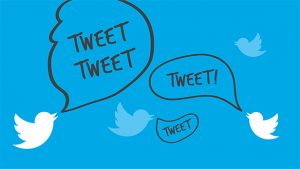Who is really abusing women on Twitter? You might be surprised

It’s no secret that women face disproportionately high sexist abuse online, but it turns out men aren’t the only party to blame – (if you discount several thousand years of patriarchy, anyway).
Women are just as likely to post misogynist statements on Twitter as men, a new study reveals. UK think-tank Demos tracked hundreds of thousands of tweets in early 2014 to work out who is abusing women on the internet, and discovered that online misogyny may be more gender-equal than previously thought.
Researchers studied around 131,000 tweets containing the words ‘slut’ and ‘whore’ used in English from UK-based Twitter accounts between January 9 and February 4, 2014. The study estimates that “approximately 18% of them appear misogynistic”, and claim that “women are almost as likely as men to use the terms ‘slut’ and ‘whore’ on Twitter.”
 Around 29% of ‘rape’ tweets are used in a casual way, say researchers
Around 29% of ‘rape’ tweets are used in a casual way, say researchers
The study also found a high proportion of “casual” misogyny: around 29% of the ‘rape’ tweets were used in a “casual or metaphorical way”, while 35% of the ‘slut’ and ‘whore’ tweets were used in a “casual or metaphorical way”. Wikipedia defines misogyny as: “The hatred or dislike of women or girls.”
The study concludes:
“
The study offered real-world examples of different types of the usage of misogynistic words on Twitter. One “abusive” tweet read: “You stupid ugly fucking slut I’ll go to your flat and cut your fucking head off you inbred whore.” Meanwhile, a “generally misogynistic” tweet stated: “Why take photos lookin like a slut and then moan when people say bad things?? You bought hate upon yourself and you know it.”
According to the study, large-scale media events often drive increases in the use of sexist language. For instance, an argument on Celebrity Big Brother on January 11, 2014, led to a significant “spike” in tweets containing the words ‘slut’ and ‘whore’.
Related: What is Twitter Moments?
 Twitter tried to tackle trolling in February 2016 by setting up the ‘Trust and Safety Council’
Twitter tried to tackle trolling in February 2016 by setting up the ‘Trust and Safety Council’
Speaking to the BBC, Kira O’Connor, Twitter’s Head of Trust and Safety, said:
“Hateful conduct has no place on the Twitter platform and is a violation of our terms of service. In addition to our policies and user controls, such as block, mute and our new multiple tweet reporting functionality, we work with civil society leaders and academic experts to understand the challenge that exists.”
Let’s not forget, however, that abuse against women – and men, for that matter – on Twitter is far more broad than the three words specifically tracked in this study. It’s also not clear whether the equal gender split of online misogyny extends beyond Twitter to other social platforms.
In any case, it’s further evidence that
“To ensure people can continue to express themselves freely and safely on Twitter, we must provide more tools and policies. With hundreds of millions of Tweets sent per day, the volume of content on Twitter is massive, which makes it extraordinarily complex to strike the right balance between fighting abuse and speaking truth to power.”
Related: Best VPN 2016
Best Smartphones 2016: What’s the #1 phone right now?
How do you think Twitter should tackle trolling? Let us know in the comments.


